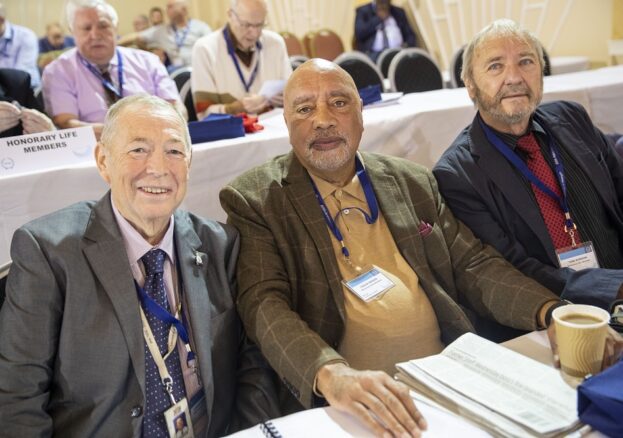
The Professional Trades Union for Prison, Correctional and Secure Psychiatric Workers (POA) is the largest UK union in penal establishments, representing uniformed prison staff and those working in secure psychiatric care. However, it has not always been viewed by many in the labour movement as a “proper” trade union, more as a staff association. The POA is a union that has come under attack and been undermined by far-right groups that have infiltrated its membership.
I joined the Prison Service in 1986, at a time when the right-wing views of many staff went unchallenged by management. There were those who openly flaunted National Front badges and voiced support for racist views. As a man of colour entering this world, I was welcomed by the majority of staff but there was a hardcore element that viewed me with suspicion and racist bigotry. In the 1980s there were not many BAME staff and in the majority of prisons there were none. Senior management was a sea of white faces.
At the same time the prison population was growing, and this was highlighted by more and more Black and Asian men and women receiving custodial sentences. In the 1980s through to the 1990s the POA had no BAME members on its national executive. Prisons have always been able to foster extreme views among inmates, whether it be the National Front, British National Party, or other neo-Nazi groups. These groups can flourish inside prisons if they are not strongly challenged by senior management. Prison officers should be the guardians of both the security and safety of those put in their charge. For them to hold extreme right-wing views is a massive danger to the stability of our prisons.
The POA in the early 1990s challenged racist views and behaviour in HM Prison Service. In 1993 the union expelled from its membership a leading neo-Nazi who had been allowed by senior management to promote his extreme views. In response the POA leadership came under attack by certain elements of the membership and the union’s executive determined it would set up a race relations advisory committee made up of BAME members of staff.
In 1996 I was elected to the national executive committee of the union – the first BAME member to be elected to such a post.
Through the late 1990s we saw a series of deaths in custody of Black inmates while they were restrained by staff and this led to a total overhaul of restraining hazards. The next ground-breaking moment came with the publication of the Macpherson Report, published in 1999 following the public inquiry into the racist murder of Stephen Lawrence. The report found there was institutional racism in the Metropolitan Police Service, and this sent shock waves through the prison service’s senior management. Many of the professional issues and competencies in the report on the Metropolitan Police could be mirrored in the prison service.
In 2006 there was another momentous public inquiry, this time focused on prisons. The focus of the inquiry was the racist murder of Zahid Mubarek. He was an Asian teenage inmate at HMP Feltham Young Offenders Institution in West London, who was killed by his racist cellmate Robert Stewart. The published report highlighted the danger posed by far-right extremists such as Stewart. Today our prisons are breeding grounds for extremists: while the media will often highlight Muslim extremists, the spotlight should also be turned towards far-right recruitment.
The Lammy Review, chaired by MP, David Lammy, focused on the criminal justice system and called for a series of reforms after finding overt discrimination and bias against BAME people in the system. The report highlighted the disproportionate numbers by stating: “Despite making up just 14% of the population, BAME men and women make up 25% of prisoners.” As of January 2020, employment statistics for the prison service show that 93.1% of prison officers in England and Wales are white, 6.9% are Asian, Black and Mixed Race, and from 2015 to 2019 BAME staff in the service increased from 2.3% to 3.1%.
No one can accurately say how many prison staff belong to far-right groups. What can be identified, with the arrival and growth of social media, is that more and more are expressing hard-right views on different platforms.
The current POA general secretary, Steve Gillan, and the present national chairman, Mark Fairhurst, have given their support to Black Lives Matter. However, their statements have been greeted by personal attacks on social media by those who claim to be members of the POA or former members.
The battle against the far-right in our penal system goes on and must be won.
